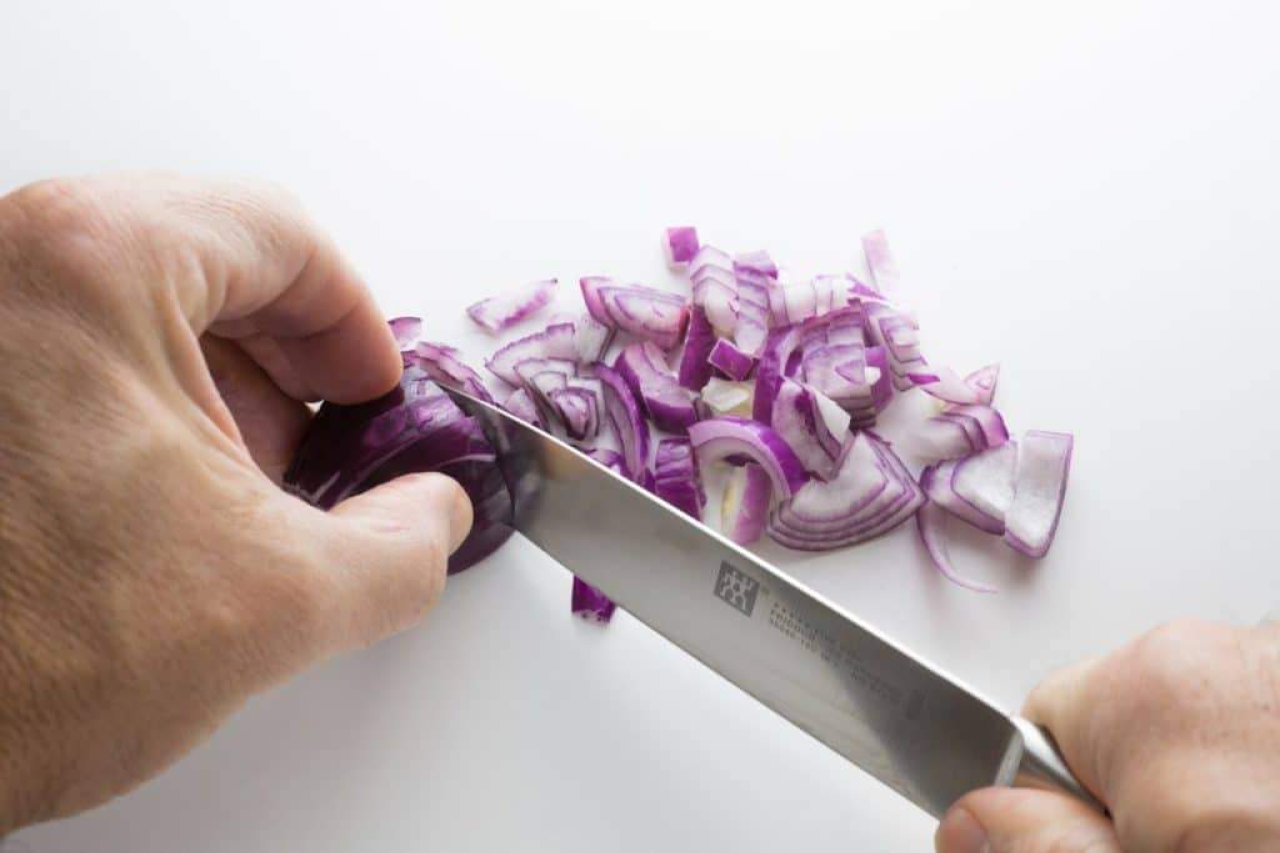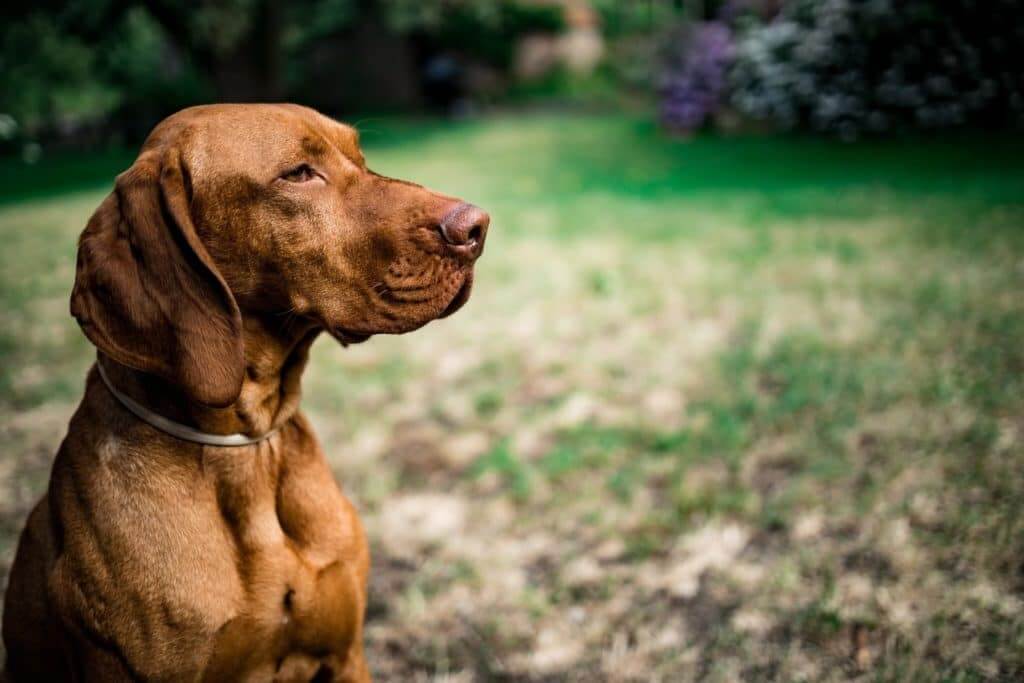
Can Dogs Eat Onions? Are They Bad For Dogs?
Written By: Tiffany Ruiz Dasilva, VMD, cVMA | Professional Services Veterinarian, Wild Earth
No, onions are not safe for dogs. In fact, they’re one of the most dangerous human foods out there for our canine companions. Ingesting too much onion can damage a dog’s red blood cells, possibly leading to a serious medical issue called hemolytic anemia.
All parts and forms of the onion are considered dangerous for dogs. Since onions are commonly used in human foods, and are often kitchen staples, it is important that you be extra careful when cooking with this vegetable, and take extra care to store them in a hard-to-reach location.
Let’s take a closer look at onion toxicity in dogs so that you know what to have your pet avoid, what onion poisoning might look like in your pooch, and what to do if your dog accidentally ingests this dangerous vegetable.
Try Wild Earth Dog Food 30% Off Today!
Why Are Onions Bad for Dogs?
While the mechanism of toxicity is unclear for some food like grapes, the mechanism by which onions can harm your pup is well known.
Onions contain a chemical called N-propyl disulfide that’s toxic for dogs. This chemical binds to a dog’s red blood cells, causing oxidative damage. The red blood cell membrane becomes fragile, causing the red blood cells to burst, which is known as hemolysis. Red blood cells are necessary to carry oxygen throughout the body, and when they are destroyed, vital organs will not get enough oxygen.
All Parts of The Onion Are Poisonous For Dogs
All types of onions - white, yellow, red, green, etc - are toxic to dogs. Every part of the onion is poisonous, including the leaves, flesh, skin, and even the juice. Dried or powdered onion is even more toxic as it is more concentrated and can therefore result in a higher risk of poisoning. Also, it doesn’t matter whether the onion is cooked or raw, both are equally dangerous for your four-legged friend.
Foods Similar To Onions That Can Be Harmful
Onions are a member of the Allium family, which includes garlic, shallots, leeks, scallions (also known as green onions) and chives, and all are dangerous for your dog. In fact, garlic has a higher concentration of N-propyl disulfide than onions, so it is even more toxic. Keep in mind that many, many foods contain onions, garlic, or onion or garlic powder as an ingredient. It is important to check the label or ask about which ingredients were used to prepare a food before giving it to your dog. We always recommend speaking with your vet before giving your pet a new type of food or snack.
Even if your dog did not chow down on an entire onion that fell onto the kitchen floor (although that’s entirely possible), they may have eaten that tasty onion ring, or a bit of that breakfast quiche. If you suspect your dog has eaten any form of onion, please consult a veterinarian.

How Much Onion Can Make a Dog Sick?
Another reason that onions and other alliums are dangerous is because it doesn’t take a lot to cause serious health problems in dogs. Generally speaking, toxicity occurs when a dog ingests more than 0.5% of their body weight in onions at one time.
To put it simply, even a small amount of onion, garlic, or other toxic allium food can poison a dog easily. The smaller the dog, the greater the danger — eating a small bit of onion might not harm a 150-pound mastiff, but it can cause serious health symptoms in a 10-pound chihuahua. You should always be mindful of where you store your onions and make sure to keep them away from your dog.
Try Wild Earth Dog Food 30% Off!
What Should I Do If My Dog Eats Onions?
If your dog is exhibiting the above symptoms and you know or suspect that he or she has ingested onions or a related food, it is recommended that you speak with your veterinarian or call the Pet Poison Helpline, a 24/7 animal poison control center, at 1-800-213-6680 right away to have the risk of poisoning assessed. Time is of the essence when dealing with any case of poisoning, including onion poisoning.
Signs of Onion Toxicity in Dogs
Even though clinical signs of illness can occur soon after your dog has consumed an onion, the full onset of clinical signs may take days to appear. Many dogs who have consumed a small amount of onion will experience mild clinical signs which include vomiting, diarrhea, drooling, and nausea. More serious clinical signs can result if your dog has eaten a larger amount, resulting in red blood cell damage, and these may likely take days to appear.
Clinical signs of anemia include weakness, pale gums, increased respiratory rate and effort, increased heart rate, red-colored urine, collapse and even death. Kidney damage can also occur as a result of anemia, and clinical signs include decreased appetite, vomiting, increased thirst, and increased or decreased urination. If you suspect your pet has eaten an onion, please seek veterinary care immediately. If your dog eats a large number of onions or related foods in a short time, toxicity could set in quickly. But it’s more common that symptoms appear a few days after ingestion.

Diagnosing Onion Poisoning In Dogs
Your veterinarian will diagnose your dog based on a combination of history, symptoms and bloodwork. Onion toxicity can be diagnosed with a microscopic test that looks for Heinz bodies on a blood smear combined with decreased red blood cell count and known recent onion exposure. Bloodwork to analyze kidney function and urinalysis is also usually recommended.
Treating Dog Onion Poisoning
The sooner your pup is able to be treated, the more likely they are to avoid the serious health effects of onion toxicity. If ingestion occurred within a few hours, vomiting may be induced, and activated charcoal may be administered to absorb the toxin in the gut. Additionally, intravenous fluids may be given. It is likely your vet will recommend repeat blood work for up to a week since red blood cell destruction can take several days to show up on bloodwork. If your dog does develop anemia, oxygen supplementation and a full blood transfusion may be necessary. Generally speaking, the outlook is good for a dog who receives early veterinary care. Remember: Time is of the essence, so if you know or even think that your dog may have gotten hold of onions or something containing onions, act quickly. Take them to the vet’s office right away, because it’s always better to be safe than sorry.
So, Can Dogs Eat Onions? Keeping Your Dog Safe in the Future
Are onions bad for dogs? Yes, they’re one of the most harmful human foods for our four-legged friends. What makes them even more dangerous is the fact that they’re so widespread. You’ll find onions in one form or another in everything from risottos and gravy to tacos and baby food. Plus, it only takes a small amount to make a dog sick.
There’s only one foolproof way to keep your dog safe from onions, garlic, and the other members of the allium family: Tightly restrict your pooch’s access at all times. Pay careful attention when you bring onions home, and when you’re preparing food with onions, garlic, chives, leeks, or shallots, so that your dog can’t eat pieces of these foods or any dishes that contain them. It’s safest to keep your dog out of the kitchen entirely when you’re preparing a meal.
Onions aren’t the only vegetable out there that’s dangerous for our canine friends. In fact, there are many vegetables and fruits that can harm dogs, as well as several that are safe. Make sure to do your research so that you know what you can and can’t give your beloved companion.
Recommended Vitamins & Supplements for Dogs
Why do dogs need supplements? Age, environment, pollutants, and the stressors of daily life can all lead to less than optimal health for your dog. We’ve created a family of supplements to provide support in the areas your dog needs it most. Learn about Wild Earth’s dog supplements.
Try Wild Earth Dog Supplements 30% Off

Tiffany Ruiz Dasilva, VMD, cVMA
Dr. Tiffany Ruiz Dasilva is the Professional Services Veterinarian here at Wild Earth. She received her Bachelor of Science degree in Biology from Brown University, and attended veterinary school at the University of Pennsylvania School of Veterinary Medicine. Since graduation, she has worked in general practice, on telehealth platforms, and in animal rehabilitation. She has worked tirelessly to gain expertise in the field of canine nutrition through numerous certifications and coursework, and plans to pursue her Masters in Animal Nutrition.



























